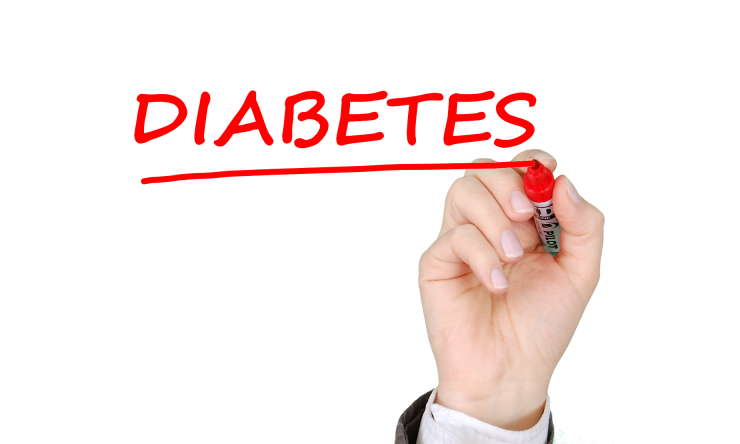Participants needed for atypical diabetes study
Baylor College of Medicine is recruiting volunteers, particularly from historically underrepresented populations, who believe they may have an atypical form of diabetes to participate in the Rare and Atypical Diabetes Network (RADIANT) study. This study discovers and classifies new and unusual forms of diabetes based on the experience of people diagnosed with diabetes who have had difficulty in managing the disease or responding to treatment based on their type 1 or 2 diagnoses.
“Diabetes has always been classified as type 1 or type 2. This is an oversimplified and increasingly unhelpful way to classify a very complex disease,” said Dr. Ashok Balasubramanyam, professor of endocrinology, diabetes and metabolism at Baylor and principal investigator and director of the Baylor RADIANT site. “We estimate that 10-15% of people diagnosed with diabetes have atypical diabetes.”
Common symptoms of atypical diabetes include very early onset diabetes, being an underweight adult with diabetes, being obese at a young age or having many members in a family develop diabetes in childhood or adolescence.
Interested participants will receive blood testing and answer questions about family and medical history to determine eligibility. If selected, participants will receive genetic testing, a comprehensive in-person visit including a detailed physical exam, and evaluation of their genetic results from genetics and diabetes experts to determine the cause of their unique type of diabetes. All testing is free, and participants may receive compensation for their time.
So far, almost 900 people have volunteered to participate in the RADIANT study. The team hopes to recruit at least 1,500 people and is eager to recruit members from minority and immigrant populations.
“We anticipate that many atypical forms of diabetes are highly represented in minority and immigrant populations. We are also looking for rare types of diabetes due to specific genetic defects, because we now have the tools to both identify and possibly treat them with precision medicine,” Balasubramanyam said.
For more information and to complete a screening questionnaire, visit https://www.atypicaldiabetesnetwork.org/ or contact radiantstudy@bcm.edu or 713-798-5757.
RADIANT was launched on Sept. 30, 2020. Baylor and the University of Chicago will serve as the lead centers for the study. Baylor and the Broad Institute in Cambridge, Mass., serve as the RNA and DNA sequencing centers. The University of South Florida is the data coordinating center for the study, and the University of Florida - Gainesville, serves as the central laboratory.
Other clinical sites participating in RADIANT include University of Chicago, Columbia University, Duke University, Geisinger Health System, Indiana University, University of Colorado – Denver, University of Maryland, Massachusetts General Hospital, University of Michigan, NorthShore University Health System, Seattle Children’s Hospital, SUNY Downstate Health Sciences University, University of North Carolina, University of Washington, Vanderbilt University and Washington University-St. Louis.
Se necesitan participantes para estudio de diabetes atípica
Baylor College of Medicine está reclutando personas voluntarias, particularmente de poblaciones históricamente subrepresentadas, que creen que puedan tener una forma atípica de diabetes para que participen en el estudio Red de Diabetes Rara y Atípica (Rare and Atypical Diabetes Network (RADIANT) study, en inglés). El objetivo de este estudio es descubrir y clasificar formas poco comunes de diabetes en base a las experiencias de personas diagnosticadas con diabetes que tienen dificultad manejando la enfermedad o respondiendo a tratamiento basado en su diagnosis de diabetes de tipo 1 o 2.
“La diabetes siempre se ha clasificado como tipo 1 o 2. Esto simplifica demasiado y es cada vez menos útil para clasificar una enfermedad tan compleja,” dijo el Dr. Ashok Balasubramanyam, profesor de endocrinología, diabetes y metabolismo en Baylor e investigador principal y director de RADIANT en Baylor. “Nosotros estimamos que entre 10% y 15% de las personas diagnosticadas con diabetes tienen diabetes atípica.”
Síntomas comunes de la diabetes atípica incluyen inicio de la enfermedad muy temprano, ser un adulto con bajo peso, ser obeso a edad temprana o tener muchos miembros en la familia que desarrollan diabetes en la infancia o adolescencia.
A los participantes interesados se les harán pruebas de sangre y preguntas acerca de su familia e historia médica para determinar su elegibilidad. Si son seleccionados, los participantes recibirán pruebas genéticas, una visita completa en persona que incluye in examen físico detallado, y evaluación de sus resultados genéticos por expertos en genética y diabetes para determinar la causa de su tipo único de diabetes. Todas las pruebas son gratis y los participantes pueden recibir compensación por su tiempo.
Hasta ahora, casi 900 personas están participando en forma voluntaria en el estudio RADIANT. Los investigadores esperan reclutar al menos 1.500 personas y están deseosos de reclutar miembros de poblaciones minoritarias e inmigrantes.
“Nosotros anticipamos que muchas formas atípicas de diabetes están altamente representadas en poblaciones minoritarias e inmigrantes. También estamos buscando formas raras de diabetes debidas a defectos genéticos específicos, porque ahora tenemos los medios para tanto identificarlas como posiblemente tratarlas con medicina de precisión,” dijo Balasubramanyam.
Para más información y para completar el cuestionario de selección, visite https://www.atypicaldiabetesnetwork.org/ o contacte radiantstudy@bcm.edu o llame al 713-798-5757.
RADIANT fue lanzado el 30 de septiembre de 2020. Baylor y la Universidad de Chicago sirven como los centros líderes del Proyecto. Baylor y el Instituto Broad en Cambridge, Mass., sirven como centros de secuenciación de RNA y DNA. La Universidad del Sur de Florida es el centro de coordinación de datos para el estudio y la Universidad de Florida – Gainesville sirve de laboratorio central.
Otros centros clínicos que también participant en RADIANT incluyen University of Chicago, Columbia University, Duke University, Geisinger Health System, Indiana University, University of Colorado – Denver, University of Maryland, Massachusetts General Hospital, University of Michigan, NorthShore University Health System, Seattle Children’s Hospital, SUNY Downstate Health Sciences University, University of North Carolina, University of Washington, Vanderbilt University and Washington University-St. Louis.










